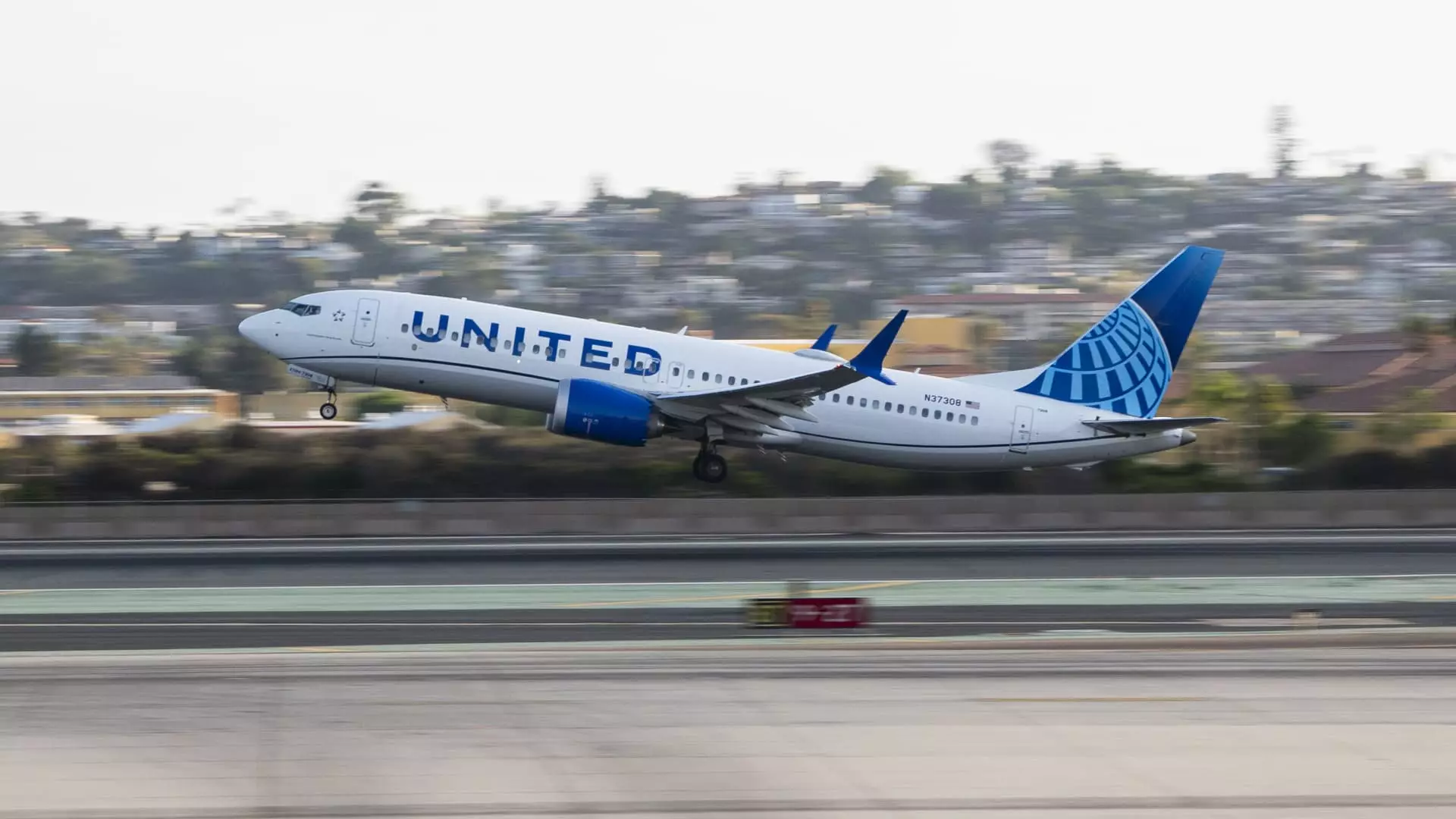United Airlines recently revealed its intentions to initiate a $1.5 billion share buyback program, marking an optimistic step for the airline as it concluded a robust summer travel season. On the heels of reporting third-quarter earnings that surpassed analyst expectations, the carrier forecasted a promising outlook for the final quarter of the year. This decision demonstrates United’s strategic maneuvering as it navigates the post-pandemic landscape of the aviation industry.
United Airlines’ earnings report for the third quarter showcased a notable performance, with the airline reporting adjusted earnings per share of $3.33, exceeding Wall Street’s expectations of $3.17. Additionally, the company’s revenue reached $14.84 billion, slightly above the anticipated $14.78 billion. The airline’s net income came in at $965 million, albeit marking a 15% decline from the previous year’s results. This juxtaposition highlights a nuanced recovery trajectory within the sector as airlines balance the repercussions of the pandemic with prevailing market dynamics.
The anticipated fourth-quarter earnings are particularly telling—United expects to earn between $2.50 and $3.00 per share, a significant improvement from the $2.00 per share it reported in the same quarter last year. This projection not only reflects the airline’s recovery from pandemic-induced financial constraints but also aligns with the overall positive sentiment circulating in the aviation market amid expanding travel demand.
The share buyback marks United’s first since before the COVID-19 pandemic. This initiative comes after U.S. airlines benefitted from over $50 billion in government aid during the height of the pandemic, which stipulated restrictions on share repurchases. United’s decision to resume buybacks parallels the actions of other major airlines, such as Southwest Airlines, which also announced a significant share repurchase program last month. This trend shows a shift from merely stabilizing during the pandemic to actively rewarding shareholders now that financial performance is improving.
CEO Scott Kirby emphasized that while the share repurchase initiative is a strategic uplifting move for investors and the airline’s stock appeal, the primary focus remains on investing in the workforce and the business, ensuring that operational integrity is not compromised for financial maneuvering.
United’s revenue generation strategies exemplify a multi-faceted approach to meeting market needs. With domestic unit revenue witnessing a positive trend in August and September, aided by strategic capacity management to alleviate fare pressures, the airline seems well-poised for future growth. Notably, corporate revenue saw a 13% increase and premium revenue, including business class, rose by 5%. Basic economy ticket sales also surged by 20%, reflecting a diversified revenue stream that appeals to varying customer segments.
The announcement of ambitious expansion plans for the next year—including flights to Mongolia, Senegal, Spain, and Greenland—signals United’s commitment to capturing the growing international travel demand. This strategic expansion could potentially enhance the airline’s market share and visibility, reinforcing its competitive stance in a recovering travel sector.
Despite the positive outlook and aggressive growth strategies, United faces challenges, particularly concerning labor relations. The announcement of the share buyback has drawn criticism from the airline’s flight attendants’ union, which is currently in negotiations for a new labor agreement. This response highlights the delicate balance airlines must maintain between rewarding shareholders and addressing the concerns of their workforce.
Moreover, the airline industry faces external pressures, such as production delays at Boeing due to recent strikes, complicating the timeline for aircraft deliveries and possibly affecting service expansion plans. With significant portions of Boeing’s factories idled, airlines like United may need to devise contingency plans to navigate supply chain disruptions.
United Airlines’ strategic initiatives, including the share buyback program and planned expansion, signal a critical turning point for the carrier as it emerges from the shadows of the pandemic. Nevertheless, the airline must navigate labor relations and supply chain challenges to sustain its growth trajectory and deliver value to all stakeholders involved.


Leave a Reply